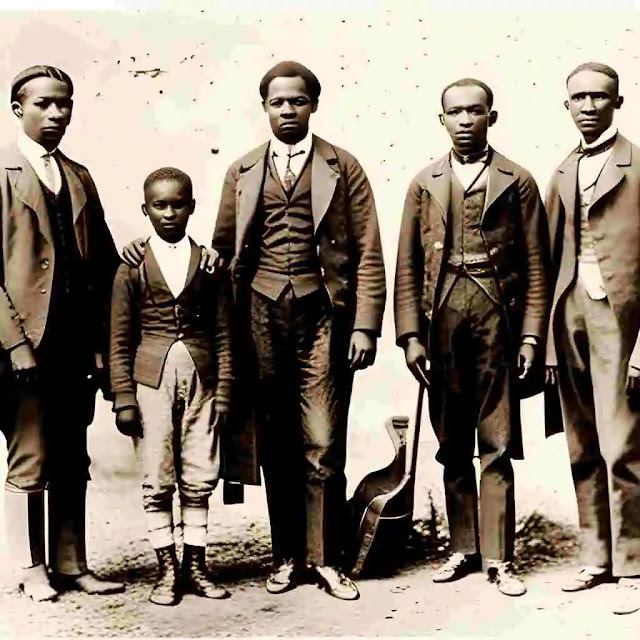Juneteenth: Celebrating Freedom and Emancipation
Introduction
Juneteenth, also known as Emancipation Day or Freedom Day, is a significant and historic celebration in the United States. It commemorates the emancipation of enslaved African Americans and holds a special place in American history. On this day, every year, people across the nation come together to honor the struggles and achievements of the African American community, while also reflecting on the progress made towards racial equality. In this article, we will delve into the history of Juneteenth, its significance, and how it is celebrated today.
The Origins of Juneteenth
The Delayed Arrival of Emancipation
The roots of Juneteenth can be traced back to June 19, 1865, in Galveston, Texas, when Union General Gordon Granger arrived and read General Order No. 3, which proclaimed the freedom of all enslaved African Americans in the state. Interestingly, this announcement came two and a half years after President Abraham Lincoln's Emancipation Proclamation of January 1, 1863. The delay in the news reaching Texas was due to various factors, including the resistance of slaveholders and the absence of Union troops in the region during the Civil War.
Juneteenth: The Name and Early Celebrations
The name "Juneteenth" is a blend of the words "June" and "nineteenth," which signifies the date of the emancipation announcement. The first celebrations of Juneteenth began in Texas shortly after Granger's proclamation. As African Americans started to celebrate their newfound freedom, the day became a significant occasion for their community to gather, rejoice, and connect with their heritage.
The Significance of Juneteenth
Symbol of Freedom and Liberation
Juneteenth carries profound symbolism for African Americans and all Americans who stand for justice and equality. It acts as a poignant symbol, recalling the profound hardships faced by enslaved people during the course of American history. Moreover, it symbolizes the triumph of the human spirit and the enduring pursuit of freedom. Juneteenth marks the official end of slavery in the United States, making it an essential milestone in the nation's journey towards racial equality.
Preserving Cultural Heritage
Juneteenth celebrations are not just about commemorating the past; they also play a vital role in preserving African American culture and traditions. Through music, dance, storytelling, and art, the celebrations showcase the rich cultural heritage of the African American community. It serves as a platform for passing down stories from generation to generation, connecting young African Americans to their roots and empowering them to embrace their identity.
Juneteenth Celebrations: Then and Now
Historical Celebrations
In the early years, Juneteenth celebrations were centered around community gatherings with shared meals, religious services, and educational activities. These events offered a space for African Americans to express themselves freely and celebrate their newfound freedom. Over time, Juneteenth evolved into larger public events, with parades, pageants, and speeches by prominent community leaders.
Juneteenth Today
In recent decades, Juneteenth has gained increased recognition and prominence throughout the United States. As awareness about this historic event grows, more states have officially recognized Juneteenth as a state holiday or observance. Companies and organizations have also started acknowledging the significance of the day by granting their employees a day off (holiday) or encouraging them to participate in Juneteenth-related activities.
The Continuing Relevance of Juneteenth
The Fight for Racial Equality
Juneteenth not only commemorates the abolition of slavery
but also serves as a poignant reminder of the enduring battle for racial
equality in the United States.The legacy of slavery still affects the lives of
African Americans today, evident in issues such as systemic racism, economic
disparities, and social injustice. Juneteenth acts as a catalyst for
discussions and actions aimed at creating a more inclusive and equitable
society.
Educational Significance
Juneteenth offers an opportunity for individuals from all backgrounds to learn about and engage with African American history. By understanding the hardships faced by enslaved people and their journey towards freedom, we can gain a better appreciation for the resilience of the African American community and the importance of promoting diversity and inclusion.
Conclusion
Juneteenth stands as a testament to the resilience and determination of the African American community in the face of adversity. It is a day of reflection, celebration, and unity, reminding us of the progress made in the fight for freedom and the work that still lies ahead. By embracing Juneteenth and its significance, we can continue to foster a more just and inclusive society for generations to come. As we move forward, let us honor the past and work together towards a brighter and more equitable future.



.webp)





Great sharing.
ReplyDelete